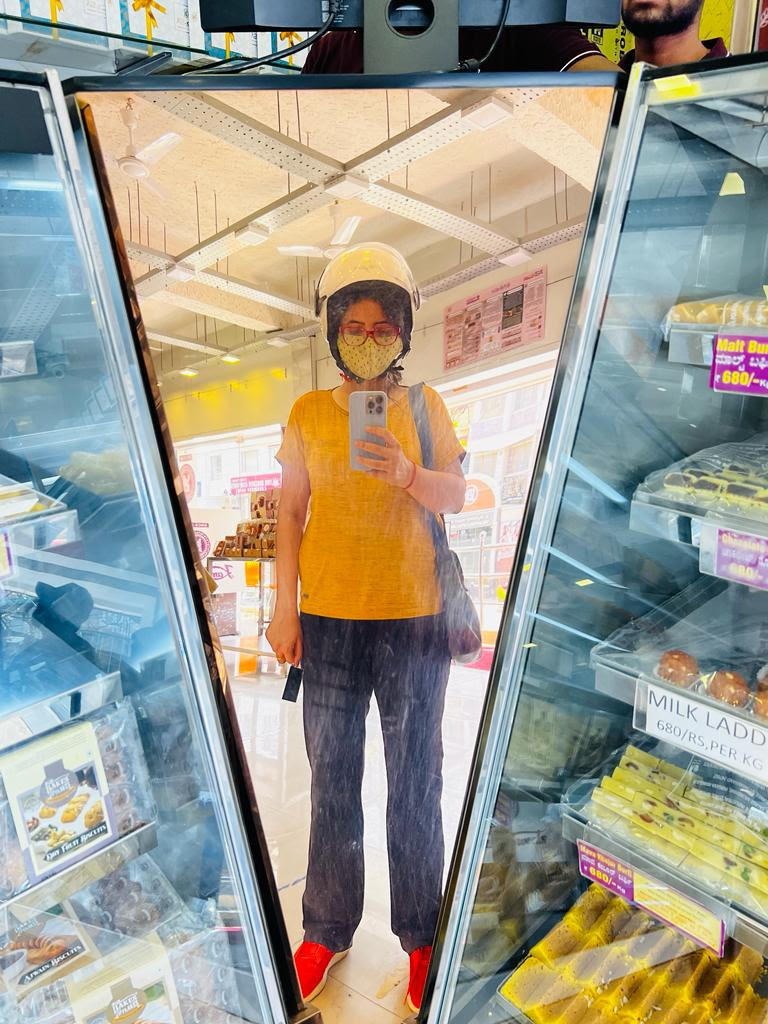
On 5th August, 2023, we organised our third community meet-up at Ritanya’s Library. The theme this time was ‘Identity and Freedom: Who defines it and what does it mean?’. The first speaker Annie Zaidi, author of the book “Break, Cement and Cactus: A Memoir of Belonging and Dislocation” joined us from London. She spoke about her book and how it feels to belong to a minority community. How her multiple identities shape her life and work. The next speaker, Kanmani Ray, is a transwoman and a lawyer who discussed her fears, vulnerabilities, and how she navigates her identities and how it impacts her freedom.

The more you write about Annie’s book, the less it is. It is one of the most profound books I have read in my lifetime. The book thread explores home and belonging from the perspectives of ancestry, language, multiple identities and migration. How your surroundings play a big role in how you feel. How your identity can make you feel scared and create belongingness depending on where and how you are located. It also makes you less free in a fairly independent country because you belong to a certain identity. As Annie has mentioned multiple times in her book, she became conscious about her dress, food habits and accent because she belongs to a minority community.
Annie spoke a lot about how being a woman is so difficult in South Asia in general and in India in particular. She mentioned the practice of female infanticide, feticide, malnutrition, skewed sex ratio, the idea of paraya dhan and that’s why parents/family members themselves don’t want to invest in girl child because they feel that investing in girl child is like giving water to neighbor’s garden.
Kanmani Ray spoke about how being a single transwoman in a batch of 400 law students at Delhi University was terrifying. She felt like there were so many knives pointed at her. She also shared her experiences of living in Delhi as a student and migrant. She also shared how it was difficult for her to be herself because of people’s attitudes and biases towards the transgender community. She faced harassment and discrimination from her classmates and teachers just because she looked or spoke in a certain way. However, she never lost hope and realised that the only way to survive was by being loud and visible in public spaces. She urged the participants to read A Revathi’s book, ‘Truth About Me: A Hijra Life Story’ because it is one of the books that inspired her to be herself and understand the nuances of living as a transgender person.
While speaking about freedom, Annie mentioned that ‘freedom is something can’t be given, it is always taken’. This is true, you can’t ask someone to give you something so intrinsic, you have to fight for it. To be counted, to feel safe, to feel welcomed, to speak in a language that a significant number of people can understand are some of the factors that will make you feel at home and belong to a certain place. That is why the focus should be on the rights of the people of India. They deserve to exist and flourish. We deserve to exist and flourish. Rights discourse was the basis of India’s constitution and our fight against the British Raj. The time has come to emphasize rights discourse again.
In the end Annie mentioned that we need to have hope in ourselves and others and keep the fight going like these bright yellow flowers shining in my living room for the last ten days.
The discussion ended with other participants Chaitanya, Nupur, and Rajesh discussing their understanding of identity and freedom and how they are so closely intertwined.

Would you be interested in meet-ups like this? Then you are at the right place. Please check out Ritanya’s Library page and share it with your friends, acquaintances, colleagues and relatives. Please fill out the Google Form if you’re interested in attending the upcoming community meet-up.
Please write to us at policywiseindia@gmail.com if you want to collaborate with us or organize a community meet-up at your place.
Please click the link below to buy us a coffee if you like this idea and would like us to organize more meet-ups like this at your place.



